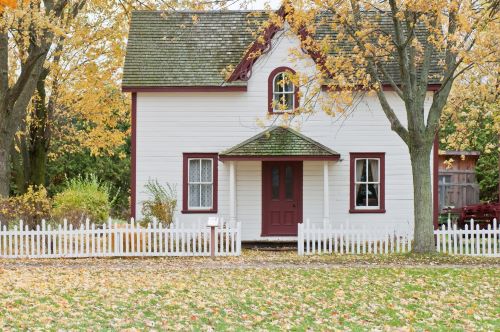1. Set a goal.
Before you start stashing cash, you have to know how much you'll need to save for a down payment. That way, you can get a rough idea of how long it will take to save up or how much you'll need to put away each month to reach your goal. As a general rule, you should aim to put at least 20 percent down to get the best pricing. So, if your budget for a new home is $200,000, that means you'll need to save roughly $40,000 to put down on a new home.
2. Set up automated savings.
Once you figure out how much dough you'll need, it's time to save. Keep yourself responsible and remove the temptation to spend extra cash by automatically drafting money from your checking account into your savings. Transfers may be weekly, bi-weekly or monthly. Whatever you do, just make the money you transfer "off-limits," except in cases of emergency.
3. Cut unnecessary expenses.
Once you commit to stowing away a set amount per month, you'll likely need to adjust your spending habits. Comb through your credit card statements and bank drafts from the last month. Is there anything you can live without? Maybe, despite your best intentions, you haven't used your gym membership in months, or you spent a little too much money on dining out. Whatever it is, trim the fat and only commit to spending what is necessary. Also, check any recurring or automatic payments you have set up. You might find that you're spending money on memberships or services you haven't touched in months.
4. Save less for retirement.
This advice may seem a little counter-intuitive, but when you're saving for a home, you need to pinch pennies everywhere. Plus, a new home is also an investment in your future, which may come in handy when you retire. Temporarily (that's the key word) press pause on putting away money in your IRA or 401k, and instead put them toward a new home. Once you're done saving, you can pick up right where you left off. But, never use your retirement funds to help with your down payment. On top of fees and penalties for withdrawing cash early, you'll be hit with costly interest rates when it's time to repay your loan.
5. Pick up a side hustle.
Lastly, get creative and start thinking of ways you can make a little extra cash beyond your nine to five. Apps and businesses like Uber, Lyft and TAKL, make it easy to earn extra cash on your own time. Freelancing, whether it's writing, design work or even dog sitting, is another great way to make a little extra cash.
No one said home buying is a breeze, but it doesn't have to be so hard either. With a little discipline, planning and elbow grease, your dream home is well within reach.